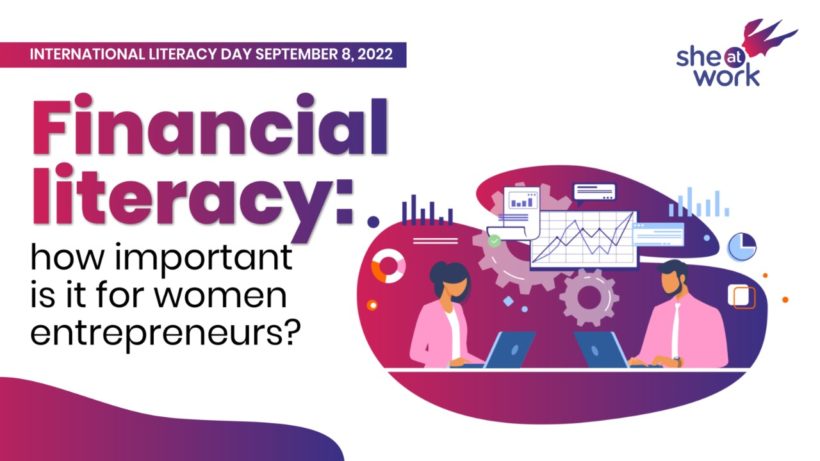Sheatwork reflects on how financial literacy is an essential, intangible resource for women entrepreneurship.
It’s primarily to raise awareness and concern for literacy problems (which exist both within our own local communities as well as global), that International Literacy Day is observed on September 8 every year.
Tracing the background, International Literacy Day was founded by proclamation of The United Nations Educational, Scientific and Cultural Organization (UNESCO), in 1966 with the objective “to remind the public of the importance of literacy as a matter of dignity and human rights.” International Literacy Day puts the focus on the ownership of the challenges of illiteracy to countries and even local communities.
The theme for 2022 is: “Transforming Literacy Learning Spaces; Exploring Opportunities and Possibilities.” In fact, literacy or ‘learning to read’ is very essential in our daily lives, but it is often taken for granted. Navigating through the world without being able to read or write is challenging and often poses many blockages. So, on International Literacy Day, organizations and individuals take charge, to encourage and assist those, who face difficulties in how to read and write. This is very critical in a country like ours.
We see students and even companies volunteer to tutor children in different communities and, they are involved in many activities like – donating books to libraries, sponsoring students’ education, to set off their life-long success. Government and international organizations and even institutions campaign for literacy at the grassroots level, which is very crucial. Plus, there are think tanks and discussion forums hosted also – to strategize and implement the best policies for the eradication of illiteracy.
Financial literacy is an essential, intangible resource
In India with women entrepreneurship gaining momentum, the question of literacy is upfront. Women-led businesses definitely provide a great thrust to the country’s economy. India has 432 million working-age women and 13.5 –15.7 million women-owned businesses that provide direct employment to 22–27 million people. In addition, a number of businesses (even global businesses) have women on top, controlling the entire business.
Women entrepreneurship can be the driving force to steer nations globally towards achieving economic and social development goals, through job creation and poverty mitigation. And, financial literacy is an essential and intangible resource that is critical for growth, success and sustained competitive advantage. It is significant today, that lack of financial literacy is one of the key challenges impacting the business growth of women entrepreneurs.
The pandemic, ushered in a range of unprecedented challenges. So, the ongoing financial crisis that women face is most urgent and must be addressed. By taking a proactive stance for financial literacy, we can seek to address gender financial inclusion gaps by engaging, educating and encouraging more women to take control of their finances.
Of course, this cannot be achieved overnight.
Finally, what goes without saying is that women are a crucial part of the entrepreneurial world and they are the change-makers. It is by empowering women both at work and at home that major changes can be imbibed in our financial inequity. If we are to help boost our nation’s economic strength, we need to look for ways to teach financial literacy to women entrepreneurs, who need it.










